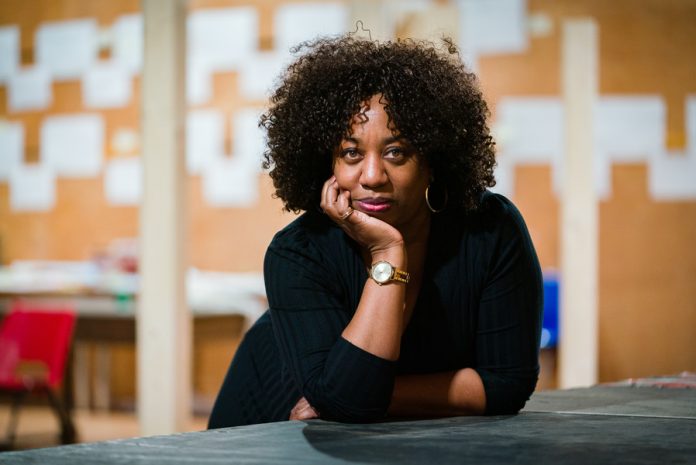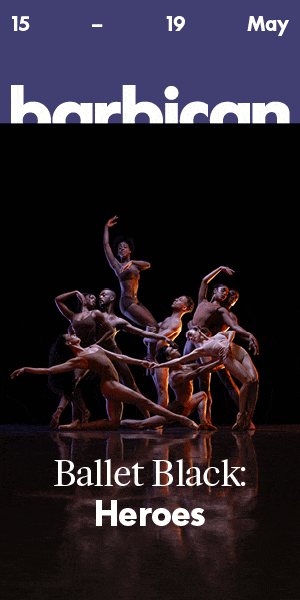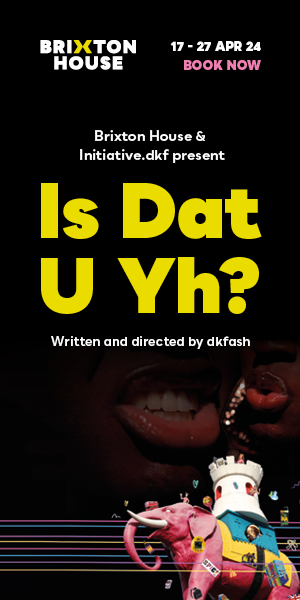The Whip is a play highlighting the evil truth about slavery in the UK.
When slavery was finally abolished in 1833, the government agreed to pay the equivalent of 20 billion pounds in compensation to those affected by slavery. Shockingly the 800,000 + men, women and children who had been violently enslaved, uprooted from their lands and tortured – not one of them received a single penny for the atrocities that had been inflicted on them. Instead the slave owners who profited from them were the recipients of this government payout as compensation for their loss of free labour.
This deal is at the centre of The Whip, which shines a light on slavery and opens up a debate as to why this bailout happened.
Writer Juliet Gilkes Romero explains why she wrote The Whip and how important it is to read up on our history.
The play focuses on the multi-million-pound bailout that the British government paid to slave owners after the abolition of slavery. When did you first become aware of this?
I was commissioned to do this piece in 2015 so I was researching the bailout anyway and I went to the House of Commons library. There was a tweet that came from HMRC in 2018 very casually saying ‘fun fact of the day – Did you know that you all helped pay off the loan that was paid to the slave owners so that they could release their slaves?’
The backlash made HMRC take it down and delete it but it was too late. All kinds of people had seen it and caused a big uproar, so it added awareness to what I was doing. It was 20 million pounds at the time which equated to 20 billion pounds in today’s money. Although these owners had already become extremely rich, it was the only way parliament could compromise and compensate these owners to free their slaves. Slaves were considered property. It was also decided that slaves had to work an extra 7 years as ‘apprentices’ because they had to be ‘prepared’ for freedom.
The slaves ended up working for the same slave masters but were treated in a more despicable manner then when they were slaves. Although they were declared free, they still had to fight for their freedom until 1838. Lots of petitions were sent to parliament to end these apprenticeships however once the slave owners were paid off, they were then entitled to free labour from slaves through these unfair apprenticeships. My play highlights we were not free when slavery was abolished unlike the traditional narrative that we get told in the UK.
I want the younger generation to know where they belong in our British history. So many of our historical stories are buried and it is up to us to shine a light of truth onto them. I am very passionate about our history
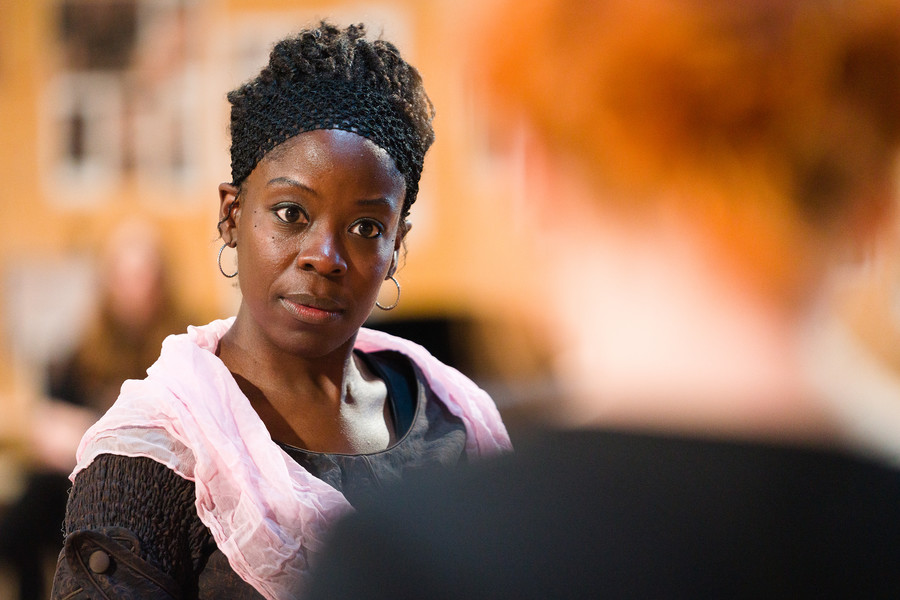
One of the main characters Mercy Pryce is based off Mary Prince [a runaway slave from the Caribbean and endured horrific events. Mary was the first woman to present a petition to parliament and her best-selling memoir in 1831, The History of Mary Prince, was the first account of a black woman’s life to be published in the UK. What made you want to focus on Mary’s story?
Mary was the first black female to petition in parliament. She was very brave and suffered so much as a slave. Her memoirs were published and were the first account of life as a black female slave – it’s worth reading as her testimony is powerful. It exposed how much black female slaves suffered. Mary Prince died just before the bill in 1833 so I took dramatic license to show her story within the context of the historical framework. My characters reflect real people in the same way that Shakespeare writes about characters that are based on real history. I am doing the same, but I think most people are not used to hearing these stories from black writers.
When I research about all the injustice people go through, it angers me and sometimes I write from a place of anger. I go to the Imperial War Museum and the House of Commons Museum and research as much as I can. I never knew about apprenticeships after slavery was technically abolished. No one tells you that even after slaves were made free, they were forced to work for their owners another 7 years. These stories are necessary for people to hear about.
A good example of one of these stories is that The British West Indies Regiment were not allowed to march in the war parades. So, when the soldiers were marching in London, there was no black presence which meant people couldn’t wave their flags at them. I am very interested in how memories and history get buried and why. Unless its exposed people won’t believe these historic stories. In my previous career as a journalist and now as a playwright I think it’s our responsibility to tell these stories.
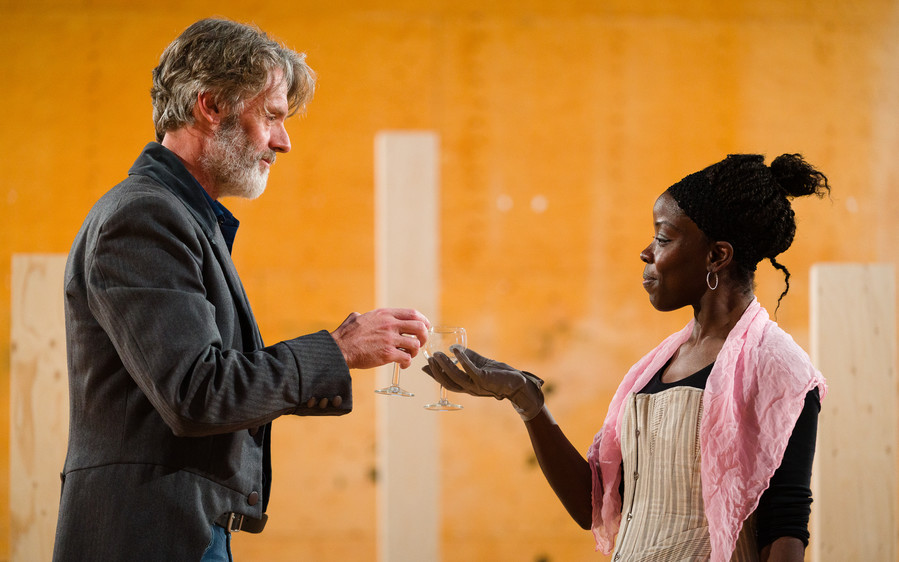
I was surprised to learn the slave debt was still being paid off up until 2015. Why do you think this wasn’t made more obvious in mainstream media?
People didn’t research it and didn’t know. Even as a journalist for many years, I didn’t know. It was only when it went public, I become aware of it all. I then researched it and used freedom of information to confirm it. My question is, why was this not in the public domain? Why was this not taught in schools? When I was at school, we spent a small length of time learning about slavery but focusing on how the boat was etc… But I didn’t learn about how the slaves had to fight during their apprenticeship for freedom and that a bailout was put in place to compensate slave owners from losing their slaves. Because of that Tweet, we were able to know what was going on. I like to tell untold stories and reading that tweet has allowed me to investigate slavery further and share people’s untold stories.
What has it been like to watch your play come to life?
It’s been spellbinding. It’s been an incredible experience. This play is being embraced by a wonderful cast who have taken this journey and are invested in the history of slavery and they want people to know about it. You start off as a very solitary entity – as a writer, you are constantly researching. I have to say the RSC commissioned this based on a one-page treatment I did for a smaller space however they liked it and believed it deserved to be performed in a bigger space. I am so grateful to get that type of support and encouragement for a story that can be challenging. I know there are many plays out there that expose history and they can be hard going.
I never knew about apprenticeships after slavery was technically abolished. No one tells you that even after slaves were made free, they were forced to work for their owners another 7 years. These stories are necessary for people to hear about.
I am very grateful for this opportunity to tell this story and I am grateful for the cast who are working very hard and researching the history themselves. We have had group sessions and have had people come and talk to us about black history. We have gone to the House of Commons – that was a wonderful moment. We all have a role to play in politics and sometimes when we see or hear about it in the media, we feel distant from it but this is our lives. When you go back to the slaves that fought for our freedom, they were no different to us.
I thank our forebears who survived the Atlantic Ocean and survived such horrific ordeal, because we can have this conversation because of their courage. We get to bring this all alive which is humbling. During our read through I was moved to tears by what I was hearing. I want the younger generation to know where they belong in our British history. So many of our historical stories are buried and it is up to us to shine a light of truth onto them. I am very passionate about our history.
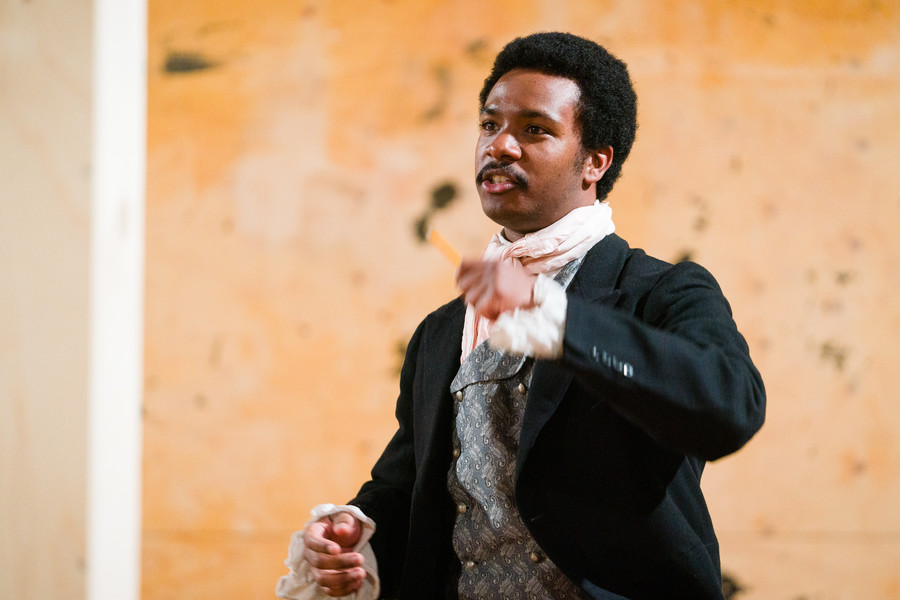
With both “Megxit” and “Brexit” bringing up conversations around race and colonialism in Britain – how do you think your play will be received in this current climate and what do you think your play can add to the current dialogue?
I think the whole purpose of theatre is the crucible indifference and debate. I think that with drama it can’t always necessarily be safe, there is always a risk with drama. Social media has changed the nature of debate along with the news. The news now creates a reaction without much context. Theatre allows us to add context and debate. With Megxit – we see a young couple who want to be independent and are emancipating themselves from the narrative of mainstream media. Its admirable that they want to be independent and its upsetting to see how they are treated because of this.
My play is about emancipation and the unknown and the real fight. It’s more than being made free by people. It was runaway slaves working hand in hand with white people who felt an empathy and didn’t need to be persuaded. Mary tells her story of how her sister had to suffer brutal flogging to her legs as a slave. The cast are bringing a true version. They have true curiosity and understanding to the play which can be relatable to current race issues.





















